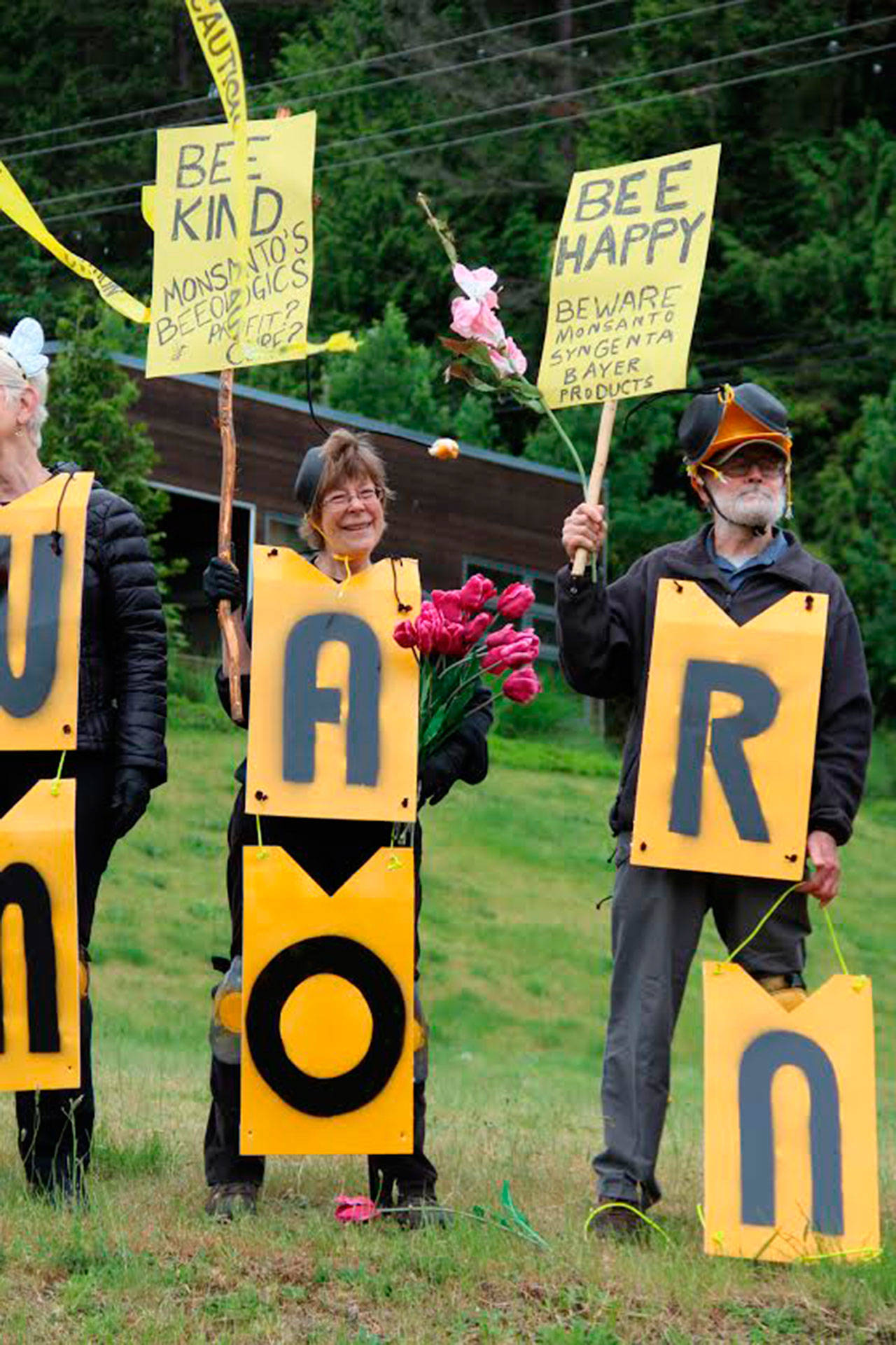The “Whidbees” will be out buzzing Saturday to raise awareness about bees and the widespread use of agricultural chemicals.
Just look for the yellow- and black-striped-people and a few fake flowers on foot at Bayview Park & Ride Saturday afternoon.
Part of an annual worldwide protest, South Whidbey demonstrators plan for the “sting” operation to start swarming at noon.
“Participants are encouraged to wear black, bring a bicycle helmet and knee pads, preferably spray painted yellow, for a visual effect of bees in a swarm,” said an announcement released by South Whidbey Tilth and the Whidbey Beekeepers Association aka Whidbees.
The following day, at South Whidbey Tilth Sunday market, the Whidbees will host an educational presentation about bees from 11 a.m. to 2 p.m.
This is the fourth year the groups have demonstrated to raise awareness about the effects on bees from neonicotinoids, imidacloprid and clothianidin.
Although Saturday’s worldwide protests are aimed against Monsanto, the company said it stopped making chemicals in 2002 and it doesn’t manufacture neonicotinoids, imidacloprid and clothianidin in its agricultural products, according to a Monsanto spokesperson.
“Monsanto today, and since 2002, has been entirely focused on agriculture,” said Charla Lord with Monsanto Company Media and Corporate Engagement office. “The chemical business of the former Monsanto was acquired by another company years ago.”
With more than 20,000 employees, the company is proud of the work its does and it’s eager for people to know more about the work it does, Lord said.
“Monsanto is committed to having an open dialogue about modern agriculture and how food is grown as we focus on using digital tools, data and research to find solutions that balance the need to feed people and protect the planet,” according to the Monsanto statement.
“Through innovation and collaboration with farmers and partnering organizations, we develop new tools that help the world’s farmers grow food using less of the earth’s natural resources.”
Studies have suggested exposure to neonicotinoids, imidacloprid and clothianidin affect bees and the environment by contaminating pollen and nectar. The bees were found to forage less and produce fewer offspring. Loss of bees as pollinators is highly detrimental to sustainable food production.
Organizers of Saturday’s protest also stated they were protesting against agricultural and biotechnology corporations “which monopolize the world’s food supply, including exclusive patenting rights over seeds and genetic makeup” that ends up being detrimental to small and organic farmers.
Whidbey Island has many beekeepers, large and small, that produce a variety of honey. Additionally, Whidbey’s numerous small commercial farms and gardens advertise growing produce without the use of chemicals.
For more information email beaululu@whidbey.net or prscot@whidbey.


